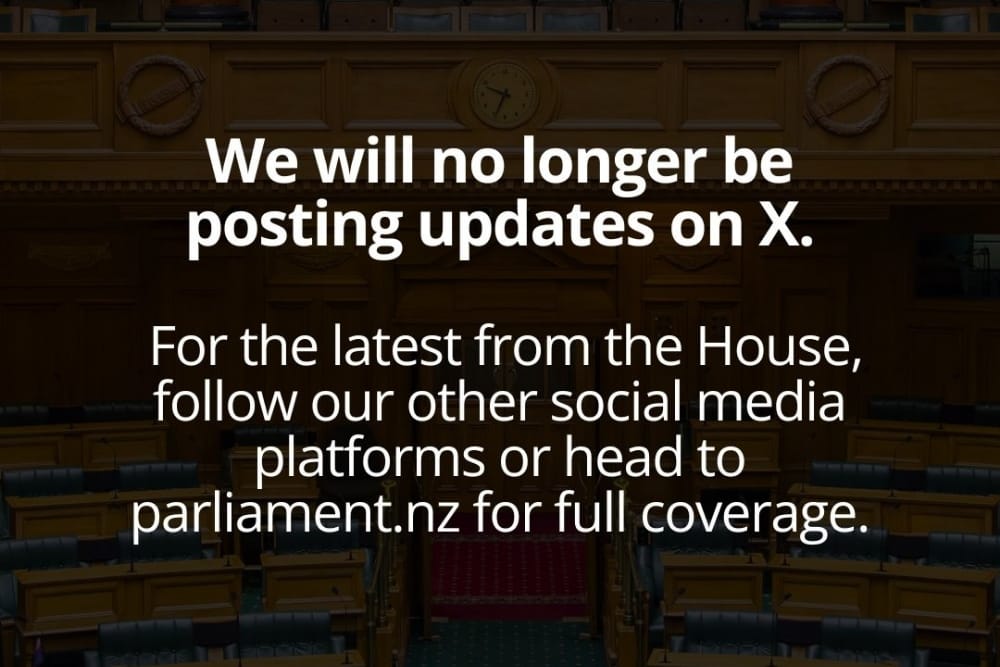The select committee for the controversial Treaty Principles Bill has recommended the proposed law not proceed.
The justice committee rejected ACT’s bill following hundreds of thousands of written submissions, hundreds of speakers, and opposition marches across the country.
In its report on the bill released on Friday morning, the committee laid out Opposition party concerns about David Seymour’s bid to translate decades of principles created through the courts and Waitangi Tribunal, into three, decided in Parliament.
It should be noted despite parliament allowing sufficient time to read all submissions, the governments call to have the select committee return its report means around 20,000 submissions have not been considered.
Labour MP Duncan Webb protested the decision to call for an early report stating on NewstalkZB that many of those submissions unopened were from Hobsons Choice supporters who were favourable towards the bill.
However Parliament has unanimously agreed to allow all submissions on the Treaty Principles Bill to be added to the public record, after a last-minute motion was moved by ACT MP Todd Stephenson.
It comes after thousands of submissions were to be excluded from the record because staff did not have enough time to process them, raising concerns about cynicism when it comes to engaging with democracy.
On Thursday afternoon, Stephenson sought leave to move a motion “without notice or debate”.
“That the Justice Committee be authorised to table and release or return submissions on the Principles of the Treaty of Waitangi Bill, as if the bill were still before the committee, after it has reported the bill to the House.
Following is a summary of the report and its political implications.
Parliament’s Justice Committee has released its report on the Treaty Principles Bill, recommending that it does not proceed.
– The bill was sent to the committee as part of the National-ACT coalition agreement.
– While ACT initially wanted a referendum, the compromise with National led to a select committee review instead.
– The bill received approximately 300,000 submissions, with 90% of written submissions and 85% of oral submissions opposing it.
– Key concerns raised by opponents included:
– inconsistency with the Treaty of Waitangi
– Negative effects on social cohesion and Crown-Māori relations
– Legal and constitutional uncertainties
– Opposition to a referendum, preferring a broader national discussion
– Concerns over equity vs. formal equality
– Environmental and linguistic impacts
– Supporters of the bill mainly argued:
– A lack of clarity about Treaty principles
– The importance of equality for all New Zealanders
– A referendum would encourage public discussion
– Political party views:
-Labour and Te Pāti Māori strongly opposed the bill, stating it misrepresented the Treaty and promoted a false narrative.
– The Green Party also rejected it, calling it an international embarrassment.
– ACT defended the bill, saying it aimed to define Treaty principles via a democratic process rather than relying on court interpretations.
– National and NZ First have committed to voting against it, effectively ensuring its rejection.
– The Justice Committee heard 529 oral submissions over 80 hours in five weeks.
– Labour MP Duncan Webb unsuccessfully attempted to exclude oral submissions in favor of written ones.
– The bill is expected to fail at its second reading, which could happen as soon as next week.
The Justice Committee’s recommendation to scrap the Treaty Principles Bill has significant political, legal, and social implications for New Zealand. Here’s a breakdown of what it means:
Political Implications
– The committee’s rejection of the bill reflects the political divide on Treaty-related issues. Labour, the Greens, and Te Pāti Māori oppose the bill, arguing it misrepresents the Treaty and undermines Māori rights, while ACT supports it as a means of defining Treaty principles democratically.
– National and New Zealand First’s decision to vote against the bill means it is unlikely to pass in its second reading, signaling a lack of broad political support.
– The National-ACT coalition agreement initially included moving this bill forward, but ACT’s push for a referendum was compromised in favor of a select committee process. The rejection suggests ACT may struggle to achieve its broader objectives on this issue.
Legal and Constitutional Implications
– The bill aimed to legally define Treaty principles, shifting interpretation away from courts, the Waitangi Tribunal, and government agencies. Rejecting the bill maintains the current system, where courts and the public service determine how Treaty principles apply.
– Many submitters argued that the bill would create legal uncertainty, particularly regarding Māori rights, government obligations, and international commitments. Its rejection avoids a potential constitutional crisis that could have arisen from redefining Treaty obligations.
– Labour and the Greens emphasize that Parliament lacks the expertise to redefine the Treaty principles, suggesting legal interpretation should remain with constitutional experts.
Social and Cultural Implications
– The large-scale opposition to the bill (with 90% of written submissions against it) signals strong public support for maintaining current Treaty interpretations.
– Concerns over social cohesion and Crown-Māori relations were central to opposition. Rejecting the bill helps prevent further division over Treaty issues.
– The bill was seen by critics as undermining te reo Māori and mātauranga Māori initiatives, which would have been negatively affected if the bill passed.
– ACT’s push for a referendum was widely opposed due to fears it could create racial tensions rather than meaningful national dialogue.
What Happens Next?
– The bill is likely to fail at its second reading, which could happen as soon as next week.
– ACT may push similar legislative efforts in the future, but opposition from other parties suggests any attempt to redefine Treaty principles will face strong resistance.
– The rejection reinforces New Zealand’s existing approach to Treaty interpretation, keeping decisions within legal and constitutional frameworks rather than subjecting them to parliamentary votes or referendums.







